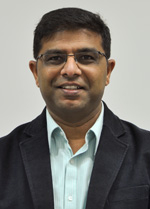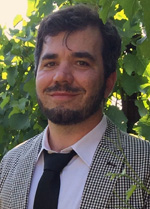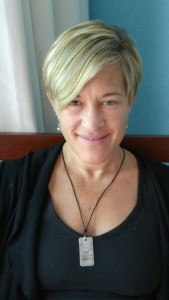Research
On this page, you will find bios of the faculty and researchers of the School of Urban and Regional Planning, including information about their professional accomplishments and the research projects they and their students are conducting.
Dr. Sandeep Agrawal, RPP, MCIP, AICP, Professor and Director

Despite increasingly heavy administrative responsibilities, I have been able to further my scholarship and grantsmanship. On behalf of Plan Canada's Editorial Board, I led the special issue on Financing Cities. I am also guest-editing the special summer issue of Plan Canada on human rights and city, which will be published soon. My co-authored book on planning in India, by Oxford University Press, is due to be published in the coming May. I continue to build on my previous body of work on land use planning, multiculturalism and human rights. I have a SSHRC grant to document settlement experience of Syrian refugees in Alberta. A Killam Cornerstone grant has generously supported my pan-Canadian study on human rights. Recently, I won a competition to conduct research on immigrants and their settlement in Edmonton, and is financially supported by the IRCC-funded Edmonton Local Immigration Partnership. I am delighted to see my Master's student, Maiya Brady, who studied self help groups in high-density villages in India, defend her thesis recently. My five doctoral students keep me busy and on my toes. One of them is collecting data for her research and the other is about to appear in his candidacy exam. The co-Presidency of the Association of Canadian University Planning Programs (with Richard Milgrom) and the membership on the Academic Programming Committee of PSB-Canada that is responsible for managing and monitoring the Planning Program accreditation are more than enough to keep me occupied for the rest of the days of the month.
Dr. Jeff Birchall, Associate Professor & Associate Director

This has been a busy year for the team at the Climate Adaptation and Resilience Lab, which now includes 10 MSc (planning) and 3 MA students, along with a Mitacs intern, an undergraduate researcher, and 2 volunteer researchers. All are engaged in exciting research of their own, and have participated on projects connected to my research program - my work explores how coastal/ big river communities are affected by climate variability, and the decision dynamics around how these communities incorporate climate adaptation into strategic planning.
My fieldwork this year, supported by the Institute for Catastrophic Loss Reduction, involved case studies in New Brunswick (flooding), British Columbia (wildfire) and Yukon (permafrost melt, flooding).
Graduate students were active in the Western Division of Canadian Association of Geographers Conference held in Victoria this March; and the team has been fortunate to publish 8 scholarly articles this past year, with other manuscripts currently under review with planning journals.
This past year I was also involved in co-developing a new Massive Open Online Course focused on Arctic climate change and community planning/ development, as well as leading and launching (with support of UAlberta North) a new Thematic Network for the University of the Arctic on local-scale planning, climate change and resilience.
Thanks in large part to this research focus, and my contribution to the field, earlier this year I was inducted into the College of Fellows, Royal Canadian Geographical Society, and made an International Fellow, The Explores Club.
Dr. Kristof Van Assche, BNSP (Netherlands), Professor

Our recent Canadian research considers strategy and long-term perspectives in communities of Western Canada and, as of late, in Newfoundland. Reconstruction of the evolution of local governance involves examining the relations with higher levels of government, the actors involved, the interplay between informal and formal institutions (including law), the role of plans, the relation with the surrounding environment and natural resources. In our theory of evolving governance, the word 'evolution' refers to an approach in which most of what happens in governance is understood as the result of the previous steps in governance; rules and roles emerge in this evolution, and influence the way new actors can find a role, and new policies, laws or plans will be implemented, or not.
We have also worked recently on coastal governance through the lens of evolutionary governance theory, on land use tools for mitigating boom and bust in communities, on the need for reinvention and institutional experiment in Northern governance, on the possibilities of linking place branding and planning in governance, on risk governance in rural development, and on classic systems theories and their continuing relevance. At the same time, we keep developing our not-so-classic theory of evolving governance.
Dr. Kyle Whitfield, RPP, MCIP, Associate Professor

Dr. Whitfield is interested in community planning and engagement from a social and health perspective. Her research explores the influence that citizens have in influencing change as a result of being empowered. She explores ways to determine successful community planning models that address community development and engagement. Dr. Whitfield teaches: Community Planning and Engagement (HGP 315/PLAN 515); Citizen Engagement and Consultation (EXLGP 8209) and Health, Community and Development (SPH 529). Her supervision interests span the following areas: planning for an aging population, community revitalization, community development and citizen participation in planning decisions.
Dr. Emily Grisé, Assistant Professor

Dr. Emily Grisé is a forward-thinking transport researcher with specializations in the areas of transport & land use planning, customer satisfaction & loyalty with public transport, pedestrian & bicycle planning, travel behaviour of disadvantaged populations (seniors and people with disabilities) and public transport planning & operations. Her work has been in collaboration with several local and regional transport agencies to directly address issues of concern to key stakeholders, while she has also provided transport expertise in the private sector. The underlying goal of her research is to develop effective policies that contribute to a more livable and sustainable society.
Most recently, Dr. Grisé focuses on helping cities deliver better public transport services, as ridership has been on the decline for the past few years in major Canadian regions. To this end, she has been working on network and service planning, for example she recently developed a method for public transport agencies to follow when adopting a transfer-based high frequency bus service, using the Réseau de transport de Longueuil (RTL) as a case study. She is also interested in understanding how planners can effectively measure and analyze customer perceptions of service quality, to enhance policy-making aimed towards improving the experiences of public transport users.
Students interested in working in the area transport planning are encouraged to get in touch with Dr. Emily Grisé.